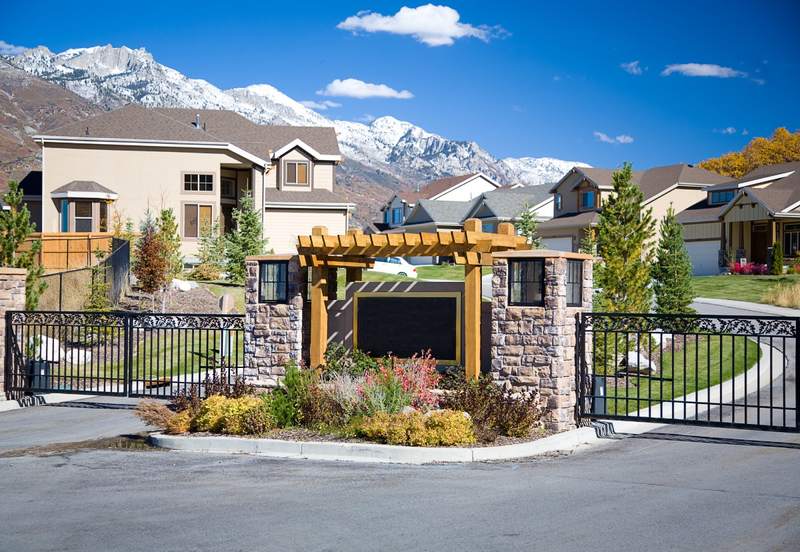
One of the biggest benefits of buying a home is the opportunity to build equity with each mortgage payment — something that renters miss out on. But homeownership also comes with costs that renting does not. Before buying a home, it’s important to understand the factors that affect the mortgage you can afford, as well as the costs you might need to pay both upfront and on an ongoing basis.
Closing Costs
Most of these fees qualify as closing costs, which range between 2% and 5% of the purchase price, and must be paid in addition to your down payment before you can call the home yours.
Loan costs
- Application fee. To process your mortgage application, you’ll need to pay the lender a nonrefundable fee of up to $500.
- Assumption fee. Mortgage assumption is when a buyer takes over responsibility for the seller’s home loan. Assumption of a conventional loan typically costs $800 to $1,000, or 1% of the total loan amount.
- Credit reporting fee. Your mortgage lender will need to pull your credit report and credit score to determine whether you’re eligible for the loan. This can cost $10 to $100 for each credit report.
- Discount points. Buying points gives you the option of paying a fee upfront to reduce your interest rate and pay less overall for the loan. The cost of each point varies depending on your lender, the loan amount, and how many points you’re buying.
- Escrow funds. Your property taxes and homeowners insurance are typically paid out of an escrow account. When you close on your home, you’ll likely need to pay for the first several months upfront.
- Origination fee. This covers the cost of setting up your mortgage, and generally is around 1% of the loan amount.
- Prepaid interest. You’ll need to pay for the interest that accrues between your closing date and first monthly mortgage payment.
- Rate lock fee. Some lenders will require you to pay a fee to lock in your interest rate during the time between when you’re preapproved for a mortgage and when you close on the home. This fee can cost 0.25% to 0.50% of the total loan amount.
- Underwriting fee. Some lenders charge a separate fee to cover the underwriting process, which is where your finances will be reviewed and verified to confirm that you can afford to repay the loan. The underwriting fee can cost up to $1,000.
- FHA loan mortgage insurance. All loans backed by the Federal Housing Administration require that you purchase mortgage insurance to protect the lender if you become unable to make your payments. You can expect this coverage to cost 1.75% of your loan amount.
- USDA loan guarantee fee. Loans backed by the Department of Agriculture require an upfront fee that can cost up to 3.5% of the total loan value.
- VA loan funding fee. Loans backed by Veterans Affairs require you to pay a funding fee to support the program. If your down payment is at least 10%, this fee is 1.4% of the total loan amount. If your down payment is at least 5%, then this fee is 1.65%. If your down payment is less than 5%, then this fee is 2.3% for those using the VA loan benefit for the first time.
Property costs
- Appraisal. Your lender will require a home appraisal to assess the fair market value of the home. You can expect the appraisal to cost anywhere from $300 to $600.
- Flood certification fee. Depending on the home’s location, you may have to pay for a flood certification to determine if the property is in a flood zone. This costs about $15 to $25.
- Home inspection. The home inspection is an important step in the process because it involves a thorough examination of the condition of the home to detect any problems or safety concerns. You can expect the home inspection to cost anywhere from $300 to $500.
- Lead-based paint inspection. If you’re purchasing a home that was built before 1978, then it could contain lead paint, and will require an inspection that usually costs about $300.
- Pest inspection. If you live in certain states or are taking out a VA loan, then you’ll need a pest inspection. This usually costs about $100.
- Survey. The survey fee covers the cost of defining your property lines and identifying any existing easements that allow other entities to use your property. It can range anywhere from $200 to $1,000.
Title costs
- Title search. The title search looks into any claims, liens, or unpaid taxes on the property and can cost anywhere from $75 to $400.
- Lenders title insurance. This coverage protects the lender against any legal challenges regarding the title of the home. It is often required by lenders and typically costs between $500 and $1,000.
- Owners title insurance. This coverage protects you against any claims or past liens against your property and can cost between $150 and $1,000, or 0.5% to 1% of the sale price.
Documentation costs
- Courier fee. If your mortgage paperwork needs to be physically transported, it will cost about $30.
- Notary fee. You may need a notary if you sign mortgage paperwork outside of the escrow office, which usually costs about $100 to $150.
- Recording fee. This fee covers the cost of registering your home sale in the public records and is usually about $125.
Third-party services
- Attorney fee. If an attorney was used to oversee your closing, they will also charge a fee.
- Closing or escrow account fee. This is usually 1% to 2% of the total purchase price.
- Real estate agent commission. The real estate agent commission is split between the buyer’s and seller’s agents. It typically costs 5% to 6% of the total loan value.
- Home warranty. This covers the cost to repair or replace certain home systems. Fees vary for the monthly plan as well as for services. It’s best to shop around to find the best fit for you.
Ongoing Costs of Owning a Home
Once you have moved into the home and are living in it, there are a number of ongoing costs you’ll have to pay. Here’s a look at some of the different costs of owning a home:
- Taxes. Property taxes are paid out of an escrow account to your local government. While the amount you pay will depend on your home and location, you can typically expect annual property taxes to come out to roughly 1% of your home purchase price.
- Insurance. Homeowners insurance protects your home and belongings against destructive events, like fire, storms, or theft. This coverage also includes liability protection in the event that someone takes legal action over an injury sustained on your property. Policies cost the average homeowner between $1,000 and $2,000 per year. Note that protection against floods and earthquakes are usually not covered by a standard homeowners insurance policy, so that coverage needs to be bought separately.
- HOA fees. Some homes belong to homeowners associations that cover shared amenities like swimming pools, security gates, and outdoor spaces. HOAs also can take care of utilities like trash removal and sewage. To cover these services, you’ll pay dues that typically amount to $200 to $300 each month.
- Emergency repairs. When repairs are needed, renters can call their property manager and have them address it. But homeowners are responsible for covering the cost of all repairs, which can get expensive. This may include electrical problems, a broken water heater, and roof damage.
- Interior maintenance. This includes the cost of fresh coats of paint, replacement appliances, furniture, and lights.
- Exterior maintenance. Renters don’t have to worry about maintaining the outside of the property, but homeowners are responsible for all exterior maintenance, which includes keeping up with the exterior paint, roof, and siding.
- Landscaping. Homeowners also must maintain the grounds of the property, which includes the cutting and watering the lawn, trimming trees, and removing snow.
- Utilities. You’ll be responsible for covering all of your utility bills, which can include water, electricity, and gas.











